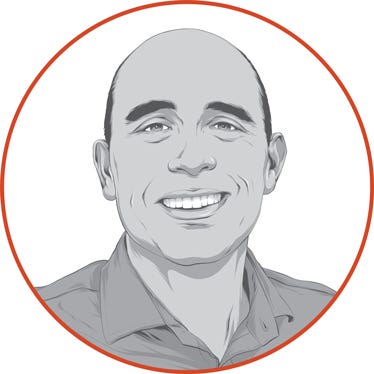
Tom, Ray, Joe, and Ramon (names changed to protect identity) farm together on a fifth generation farm. On the outside they look like any other operation, but looking inside tells another story. They argue over wages and hours worked, question each other's dedication, and constanty compete with each other. At first it was hard to keep track of all the different "issues," but over time I began to see a common thread that runs through most arguments: Lack of trust.
Why Worry about Trust?
Low trust farm teams spend too much time and energy managing the behaviors, politics, and interactions within the group. At best this means low achievement and the worst, failure.
A classic book that looks at trust within teams is The Five Dysfunctions of a Team by Patrick Lencioni. Every function of a team builds from the function below it and together they form a pyramid. Trust resides at the bottom of the pyramid and is the base for all other functions.
This is not about being trustworthy or honest (both important) but rather a higher level of trust where everyone in the team is voluntarily open to the rest of the team.
High Trust Team Members
Admit when they make a mistake and don’t conceal it
Ask for help to improve and tap into other’s knowledge
Accept input without being defensive
Give other people the benefit of the doubt
Offer assistance
Focus time on important issues, not politics and turf wars
Go directly to an coworker if there are problems, not talk behind their back
Offer and accept apologies without hesitation
Look forward to working as a team
Building a high trust team requires good experiences that are ocurr over time. There are no shortcuts but there are a few tools to bring about the change.
Get to really know your team – Get to know your team members histories, goals, and what gets them excited about life. Team members don't have to be best friends but they should enjoy being together. This is not a one-time event but rather an daily ongoing process.
Personality and Behavioral Preferences – Have your team take and review each other's personality preferences via a facilitated discussion using Myers-Briggs or DISC (which is what I recommend). Taking the time to understand each other's personality goes a long way to building better communication.
360 Degree Feedback – Instead of a traditional year end employee review, provide them with a 360 Degree Feedback. Survey your employees about how well they like working for you and ways Senior Leadership can improve. Is your skin thick enough?
Do What You Say and Say What You Do – Nothing builds trust faster than follow through, follow up, and open communciaiton.
Celebrate Success and Deconstruct Failure – When the team or someone on the team does something exceptionally well it needs to be acknowleged with the team so others can copy it. When failure occurs, it needs to also be openly deconstructed to learn what went wrong. This is about fixing the problem, NOT pointing fingers at the person behind it.
The Jury is Still Out
Trust is the base of any team. The jury is still out on Tom, Ray, Joe and Ramon. Do they want to build trust or will they stay entrenched in their own motives, agendas, and fears of retribution for honest mistakes? Will the farm survive with this low level of trust? Time will tell.
If you are perplexed why your team can't pull together, think about trust on your farm. Put together an action plan to build trust. If you get stuck give me a call and we can chat for 15 minutes to get you moving again.
Coming in part two: How to resolve conflicts on the farm
Tim Schaefer founded Encore Consultants to provide specialized advising and coaching to farm families and agribusiness at the crossroads of change. With over 20 years of experience advising farmers, Tim was an early pioneer of peer advisory groups for agriculture as a way for successful farmers to gain knowledge, ideas and skills from each other in a non-competitive environment. Tim can be reached at [email protected]
The opinions of the author are not necessarily those of Farm Futures or Penton Agriculture.
About the Author(s)
You May Also Like






